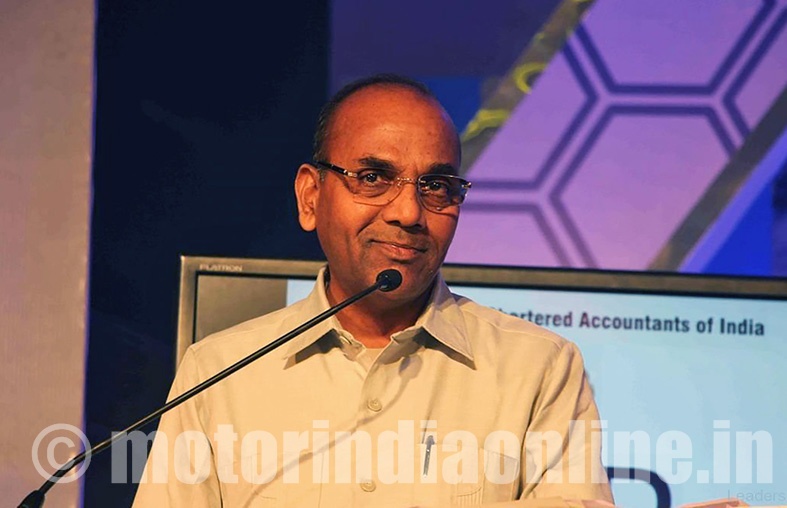Realising the strategic importance of capital goods and the pivotal role that it plays in overall manufacturing is central to the vision of the “Make in India” campaign.

This was stated by Mr. Anant Geete, Minister, Heavy Industry & Public Enterprise, while unveiling the National Capital Goods Policy, a first time-ever policy for this sector at a seminar on “Capital Goods and Engineering: Realizing the ‘Make in India’ Vision” held as part of the ‘Make in India Week’.
It is an endeavour to drive growth for the capital goods sector and a part of the Government commitment to help realise this vision of “Building India as the World Class Hub for Capital Goods”. The policy envisages increasing exports from the current 27% to 40% of production, while increasing the share of domestic production in India’s demand from 60% to 80%, thus making the country a net exporter of capital goods. The policy also aims to facilitate improvement in technology depth across the sub-sectors, increase skill availability, ensure mandatory standards and promote growth and capacity building of MSMEs.
“National Capital Goods Policy” is a unique Government-led industry-driven manoeuvre for scripting a new growth narrative in the history of industrial development. The Department of Heavy Industry set up a joint task force with CII as an attempt to ensure that the formulation of the Capital Goods Policy is done in the most democratic manner and the recommendations being made carve a roadmap for capital goods that makes the sector a part of global value chains, apart from mere supply chains. The policy has been framed after extensive stakeholders’ consultations with industry, academia, different ministries, etc., to finalize the key recommendations which will support and boost development of this crucial sector.
The aim of the policy is to create game changing strategies for the capital goods sector. Some of the key issues addressed include Availability of Finance, Raw Material, Innovation and Technology, Productivity, Quality and Environment Friendly Manufacturing Practices, Promoting Exports and Creating Domestic Demand.
Key policy recommendations include strengthening of the existing scheme of the DHI on enhancement of competitiveness of the capital goods sector by increasing the budgetary allocation and expanding its scope to further boost global competitiveness in various sub-sectors of CG, enhancing the export of Indian made capital goods through a Heavy Industry Export & Market Development Assistance Scheme (HIEMDA), launching a Technology Development Fund, upgrading existing and setting up new testing & certification facility, making standards mandatory in order to reduce sub-standard machine imports and, at the same time, providing opportunity to local manufacturing units by utilising their installed capacity and launching a scheme of skill development for the CG sector.
Addressing an inaugural session, Mr. Anant Geete said that the capital goods sector is currently going through many challenges and issues, and to address those challenges, the Government has launched the comprehensive National Capital Goods Policy. The clear objective of this policy is to increase production of capital goods from Rs. 230,000 crores in 2014-15 to Rs. 750,000 crores in 2025.
Mr. Geete lauded the industry for its efforts and contribution towards the CG sector, especially the MSME industry. He assured that his Ministry will hand-hold the industry for building India as the world-class hub for capital goods.
He further suggested that the need of the hour is to adopt and accept the latest technologies available across the world to promote the CG sector. Currently India is the most secure destination for investments with adequate manpower.
Mr. Vipin Sondhi, Chairman, CII National Committee on Capital Goods and Engineering, and Managing Director & CEO, JCB India Ltd., said that the National Capital Good Policy will act as an engine to promote the capital goods sector in the global market and help in placing the sector on a high growth trajectory.
Mr. Sumit Mazumder, CII President, said that the Government has taken unprecedented and innovative steps with multi-dimensional endeavour to boost manufacturing, such as targeting skill development, FDI, R&D and, most significantly, ease of doing business. “Industry is greatly inspired by the many steps taken under the ‘Make in India’ campaign”, he added.
Several MoUs were signed in the presence of high-level dignitaries of the Department of Heavy Industries. The first MoU signed between Heavy Engineering Corporation Ltd. (HEC) and CNIITMASH, Russia, was for setting up a Common Engineering Faculty Centre for training at HEC, Ranchi. The second MoU signed between HEC and Paul Worth, Luxembourg, was for a new coke oven battery and refurbishing of coke oven machinery.